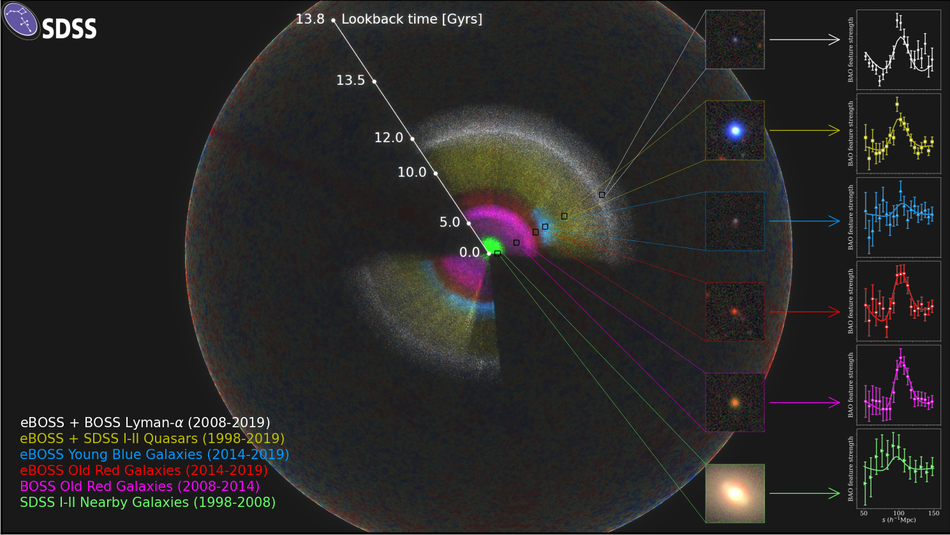This map looks back in time.
Astronomers working on the Sloan Digital Sky Survey — a decades-long project to map the universe — recently released a new 3D map of the cosmos. It encompasses 11 billion years (out of 13.8 billion) of the universe’s history.
More than 100 scientists mapped the distances of over two million galaxies and quasars (supermassive black holes releasing enormous amounts of energy) to create a map of the universe, in relation to Earth.
“We are located at the center of this map,” the group wrote, in reference to the map below.
“As we look out in distance, we look back in time,” they add. (Here, we’re seeing a “slice” through a sphere.)
The light we see from other stars and galaxies takes a long, long time to arrive at Earth (For example, it takes some 2.5 million years for light from the Andromeda Galaxy to reach us.)

The SDSS map of the universe.
Image: Anand Raichoor (EPFL) / Ashley Ross (Ohio State University) / SDSS Collaboration
[embedded content]
The map shows different objects in space, like galaxies, at different distances from us. In each colored area designated on the map, astronomers measure the pattern of light detected from the objects — all of which are moving away from our galaxy as the universe incessantly expands. (Light from the oldest objects in the universe, for example, is stretched as these objects move farther from us, which changes the light’s wavelength.)
These signatures help reveal where these objects are, in relation to one another, in the ever-evolving, expanding universe.
